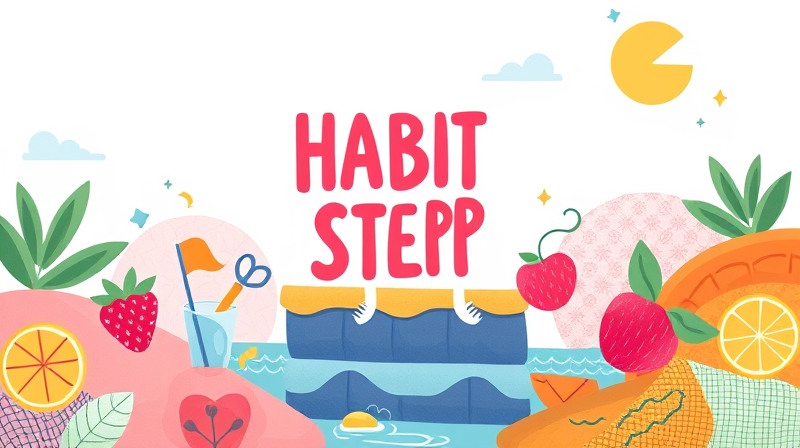In a world where pressures seem to multiply every day, it is essential to discover techniques that help in managing stress and easing anxiety. Practical, hands-on methods can provide not only momentary relief but also long-term benefits to both mental and physical well-being.
Today, we explore a variety of techniques that blend movement, breathing, lifestyle adjustments, and creative outlets. Engaging in these activities regularly can lead to lasting changes in mood, energy, and overall mental clarity.
Movement and Its Profound Impact
Physical activity is more than just a way to build strength or tone your body. It is a critical element for releasing pent-up emotions and tension. When you exercise, your body releases endorphins that help to naturally combat stress while reducing cortisol levels, a hormone associated with anxiety.
- Aerobic Exercises: Activities like jogging, swimming, or cycling are known to elevate mood and decrease feelings of anxiety.
- Mindful Movement: Practices such as yoga, tai chi, and qigong emphasize the connection between breath and movement, providing a holistic approach to managing stress.
- Daily Walks and Stretching: Simple exercises performed outdoors, such as walking and stretching, can significantly enhance mood and release muscle tension.
These creative activities not only keep the body in motion but also serve as a form of meditation and mindfulness that reconnects us with the present moment.
Breathing Techniques and Relaxation Methods
When stress starts to overwhelm, turning to your breath can help reset your mind. Focused breathing techniques are an effective tool for calming the nervous system. Whether you are practicing deep breathing exercises like the 4-7-8 method or engaging in box breathing, you are inviting a sense of balance back into your life.
Another excellent strategy is to incorporate progressive muscle relaxation, where you tense and slowly relax each muscle group. This systematic approach not only releases built-up physical tension but also fosters a link between mind and body. Combining these practices with meditation can further sharpen your focus and diminish anxious thoughts.
Building Resilience Through Everyday Habits
Adjusting daily habits is equally important for a well-rounded approach to stress management. A balanced diet and consistent sleep patterns are foundational components that influence your overall emotional health. Foods rich in vitamins and minerals, combined with adequate hydration, equip your body to combat stress efficiently.
Sleep is the body’s natural reset button. By creating a regular sleep schedule and establishing a calm bedtime routine, you can improve your rest quality. Moreover, learning to set boundaries in everyday life, such as delegating tasks or saying no to overload, is critical in preventing burnout and cultivating long-term resilience.
The Role of Creative and Social Outlets
Creativity and social connectedness are essential aspects of stress management. Engaging in hobbies that bring joy, whether it be drawing, writing, or even simple journaling, provides a mental break from the daily hustle. These activities allow for self-expression and can be incredibly therapeutic.
On the social front, fostering connections with friends, family, or even pets can have a remarkable effect on alleviating loneliness and stress. During challenging times, having a support system where you can share your feelings can reintroduce balance and optimism into your life.
Harnessing the Calming Power of Nature
Never underestimate the power of nature. Even a brief interaction with the natural world can have profound benefits for your mental health. Spending time outdoors, such as taking a walk in the park or sitting under a tree, helps to ground your thoughts and reconnect you with the simple pleasures of life.
Engaging in grounding techniques, such as walking barefoot on grass or focusing on the sensory details of natural surroundings, offers an immediate and effective way to reduce stress. These practices allow you to shed mental clutter and embrace the healing energies present in nature.
The Importance of Structured Self-Care
Embedding self-care into your daily routine is not a luxury but a necessity. Dedicating time to activities that nurture the soul—like taking a warm bath, enjoying a quiet moment of meditation, or listening to soothing music—reaffirms your self-worth and helps combat stress.
In addition to conventional self-care routines, engaging in hobbies and interests that do not involve any pressure or deadlines can be very beneficial. These moments of joyful distraction can serve as a daily reminder that you deserve to live a balanced and fulfilling life.
Recognize when professional support is needed. For some, stress and anxiety can become overwhelming and may require the guidance of a therapist or counselor. Programs such as Cognitive Behavioral Therapy (CBT) and mindfulness-based stress reduction combine professional insights with hands-on techniques to help manage chronic stress.
As you experiment with these strategies, remain patient with yourself. Incorporate a blend of physical exercises, breathing techniques, lifestyle changes, creative expressions, and grounding practices until you find the right mix that suits your life.
Embrace these methods as tools that empower you to face life with heightened resilience and positivity. With consistent practices and a compassionate approach towards yourself, you lay a strong foundation for inner calm and enduring well-being.








